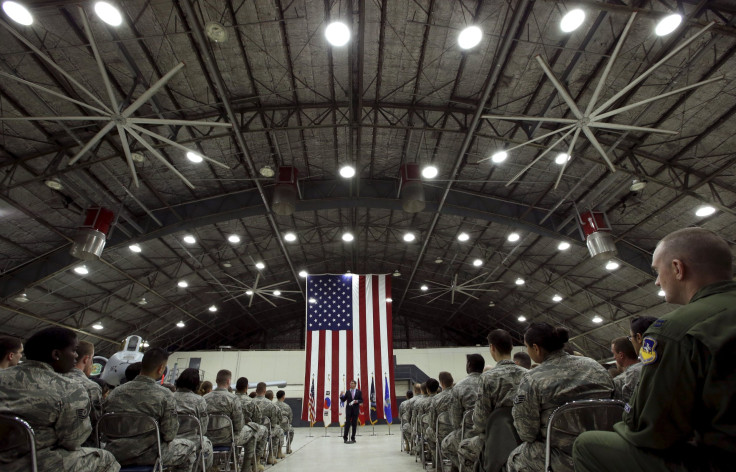Pentagon To Unveil New Cyberstrategy That Includes Offensive Capabilities

For the first time ever, the Pentagon will list “cyber operations” as a means of targeting its adversaries, according to a new cybersecurity strategy scheduled to be unveiled on Thursday. The document, accessed by several media outlets ahead of its release, reportedly states that the U.S. military should be able to use cyber operations to “disrupt an adversary's command and control networks, military-related critical infrastructure and weapons capabilities.”
The new initiatives, which will be announced by Defense Secretary Ashton Carter during a speech at Stanford University on Thursday, will be a marked departure from the previous cyberstrategy, released in 2011, which made little reference to the Pentagon’s offensive capabilities in cyberspace. The document also singles out threats from Russia, China, Iran and North Korea, according to media reports.
“The United States must be able to declare or display effective response capabilities to deter an adversary from initiating an attack,” the document reportedly states. “During heightened tensions or outright hostilities, DOD [Department of Defense] must be able to provide the president with a wide range of options for managing conflict escalation.”
However, speaking to reporters en route to California, Carter reportedly said that the “primary focus” of the U.S. cyberstrategy would remain on defense. “It will be useful to us for the world to know that, first of all, we're going to protect ourselves," he reportedly said.
In recent years, cyberattacks against the U.S. government and companies have witnessed an uptick, and, as in the case of last year’s breach of Sony Pictures’ database, North Korean hackers have been directly implicated.
“The severity and sophistication of the cyberthreat to U.S. interests has progressed over the last few years, so we wanted to make sure the Department of Defense was focused on doing things that would help mitigate that threat,” a U.S. official, speaking on the condition of anonymity, told the Washington Post.
The new initiatives would also include the establishment of a Defense Department cell in Silicon Valley. “Staffed by an elite cadre of active duty and civilian personnel, DIUX [Defense Innovation Unit Experimental] will also be complemented by reservists, representing some of the best technical talent in the world,” Defense One reported, citing an unnamed official.
© Copyright IBTimes 2024. All rights reserved.






















